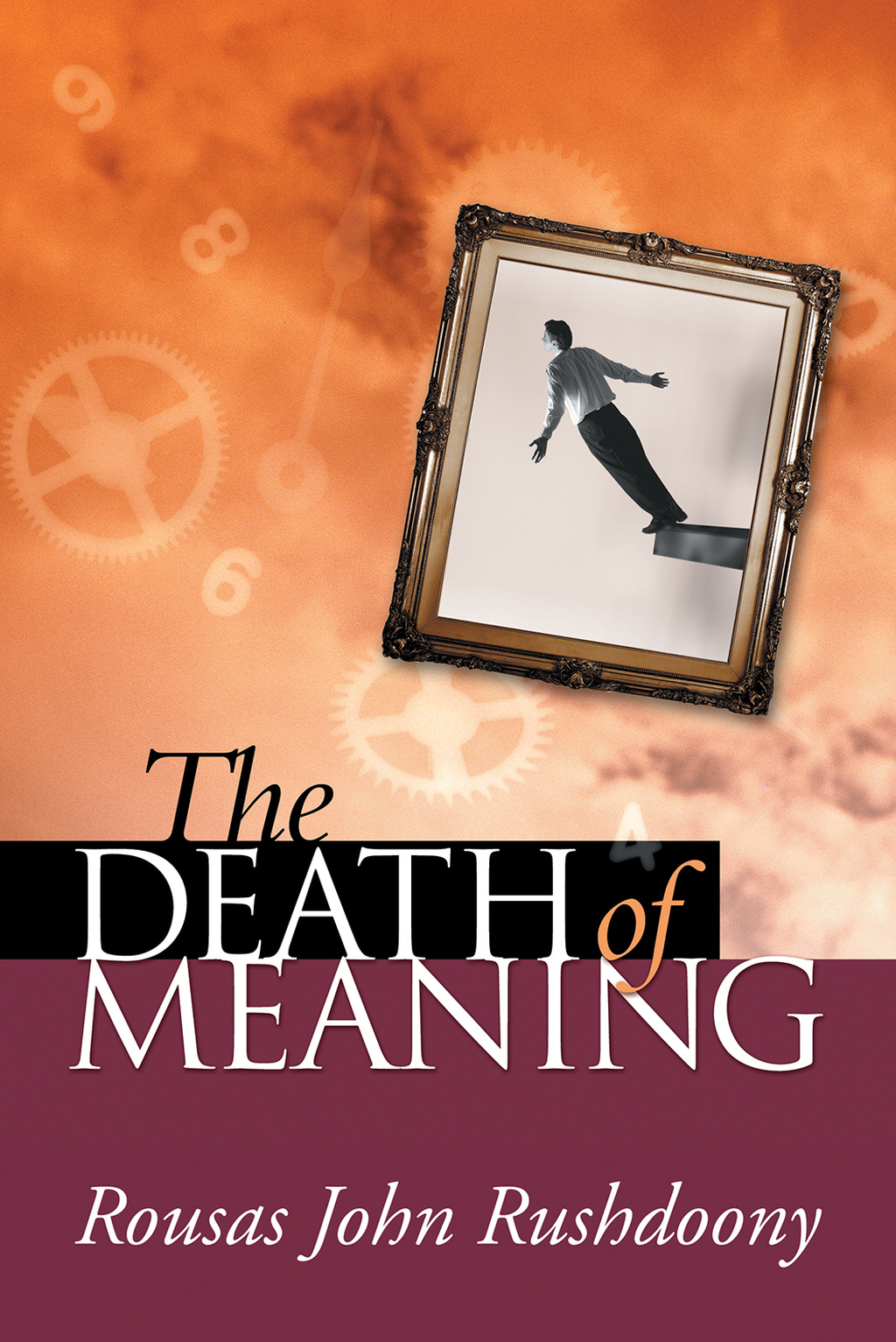
Death of Meaning, The
In this volume, Dr. Rushdoony clearly enunciates each major philosophers position and its implications, identifies the intellectual and moral consequences of each school of thought, and traces the dead-end to which each naturally leads. There is only one foundation. Without Christ, meaning and morality are anchored to shifting sand, and a counsel of despair prevails. This penetrating yet brief volume provides clear guidance, even for laymen unfamiliar with philosophy.
eBook , Paperback

- R. J. Rushdoony
For centuries on end, humanistic philosophers have produced endless books and treatises which attempt to explain reality without God or the mediatory work of His Son, Jesus Christ. Modern philosophy has sought to explain man and his thought process without acknowledging God, His Revelation, or man's sin. God holds all such efforts in derision and subjects their authors and adherents to futility. Philosophers who rebel against God are compelled to abandon meaning itself, for they possess neither the tools nor the place to anchor it. The works of darkness championed by philosophers past and present need to be exposed and reproved.
In this volume, Dr. Rushdoony clearly enunciates each major philosophers position and its implications, identifies the intellectual and moral consequences of each school of thought, and traces the dead-end to which each naturally leads. There is only one foundation. Without Christ, meaning and morality are anchored to shifting sand, and a counsel of despair prevails. This penetrating yet brief volume provides clear guidance, even for laymen unfamiliar with philosophy.

- R. J. Rushdoony
Rev. R.J. Rushdoony (1916–2001), was a leading theologian, church/state expert, and author of numerous works on the application of Biblical law to society. He started the Chalcedon Foundation in 1965. His Institutes of Biblical Law (1973) began the contemporary theonomy movement which posits the validity of Biblical law as God’s standard of obedience for all. He therefore saw God’s law as the basis of the modern Christian response to the cultural decline, one he attributed to the church’s false view of God’s law being opposed to His grace. This broad Christian response he described as “Christian Reconstruction.” He is credited with igniting the modern Christian school and homeschooling movements in the mid to late 20th century. He also traveled extensively lecturing and serving as an expert witness in numerous court cases regarding religious liberty. Many ministry and educational efforts that continue today, took their philosophical and Biblical roots from his lectures and books.